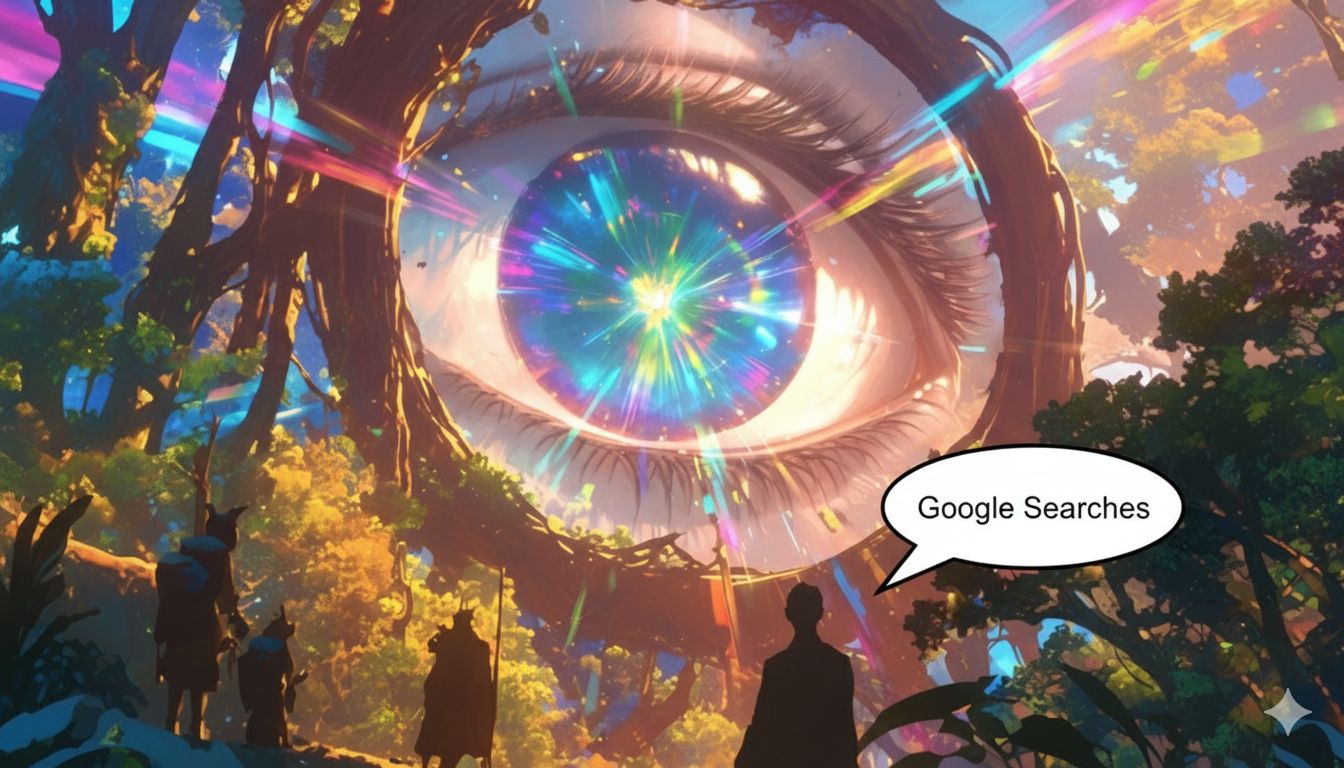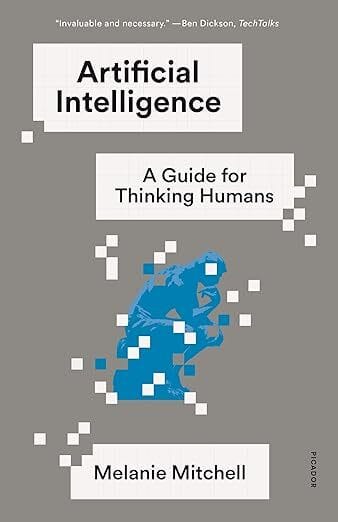Your career will thank you.
Over 4 million professionals start their day with Morning Brew—because business news doesn’t have to be boring.
Each daily email breaks down the biggest stories in business, tech, and finance with clarity, wit, and relevance—so you're not just informed, you're actually interested.
Whether you’re leading meetings or just trying to keep up, Morning Brew helps you talk the talk without digging through social media or jargon-packed articles. And odds are, it’s already sitting in your coworker’s inbox—so you’ll have plenty to chat about.
It’s 100% free and takes less than 15 seconds to sign up, so try it today and see how Morning Brew is transforming business media for the better.
Beginners in AI
Good morning and thank you for joining us again!
Welcome to this daily edition of Beginners in AI, where we explore the latest trends, tools, and news in the world of AI and the tech that surrounds it. Like all editions, this is human curated, and published with the intention of making AI news and technology more accessible to everyone.
THE FRONT PAGE
When Google Pays Attention, Entire Industries Move

TLDR: On January 15th, Google will make automation free for 1.8 billion Gmail users—but this launch reveals something bigger about what happens when Google finally turns its attention to something.
The Story:
Google just announced that Workspace Flows will launch January 15th, bringing drag-and-drop automation to anyone with a Gmail account. The service connects 200+ apps—including competitors like Slack and Microsoft products—without requiring coding skills or paid subscriptions. While platforms like Zapier and Make have charged $20-70 monthly for similar automation, entire ecosystems have sprung up around these tools, with consultants and agencies building custom automations for businesses. But the automation tool itself isn't the story. Google has its hands in so many simultaneous projects—quantum computing, life sciences, mapping the physical world—that when they finally turn their attention to something, they're not starting from zero. They spent $2.7 billion this August to bring back Noam Shazeer, co-author of the 2017 paper "Attention Is All You Need" that launched the transformer revolution, and made him technical lead on Gemini. That's attention, applied. They went from no presence in AI video generation to Veo becoming one of the most popular models available, continuously adding features. Their image model Imagen is doing the same.
Its Significance:
Google's pattern is becoming clear: let others validate markets, then turn their attention with compound advantages. Gemini Deep Research now pulls from Gmail, Drive, Docs and Chat to create reports using your actual work context—something standalone chatbots can't do. Their Maps integration with Gemini analyzes 250 million places and decades of Street View data to give directions like "turn after the Thai restaurant" instead of "turn in 500 feet." When Google stays focused—admittedly not always guaranteed, given casualties like Google Reader, Inbox, Google+, Hangouts, and Stadia—they bring distribution that competitors can't match. Workspace Flows isn't competing with automation tools. It's making automation as unremarkable as spell-check, something that just exists in products 1.8 billion people already use daily.
QUICK TAKES
The story: An entirely AI-generated country artist called Breaking Rust topped Billboard's Country Digital Song Sales chart with "Walk My Walk." The song has over 2 million monthly Spotify listeners and 35,000 Instagram followers, but the gravel-voiced cowboy singing doesn't exist. It's credited to Aubierre Rivaldo Taylor, someone with almost no internet presence. Country fans and artists are especially upset because the genre prides itself on authenticity.
Your takeaway: This is the first time an AI-created song has reached number one on any Billboard chart. It's forcing the music industry to decide what's acceptable as AI songs compete with real human artists for attention and money. We covered this new reality of AI-generated songs topping the charts in our last weekly edition The AI Singer Making $3M For Its Human Creator
The story: Sachin Katti quit his job as Intel's chief technology officer and AI head after only six months to join OpenAI. He'll help build OpenAI's computer systems for artificial general intelligence. Intel CEO Lip-Bu Tan will now directly oversee Intel's AI efforts himself.
Your takeaway: This is a bad look for Intel's AI plans. When your top AI leader leaves after just six months for a competitor, it signals that Intel is struggling to keep up in the AI chip race.
The story: Yann LeCun, Meta's chief AI scientist and a deep learning pioneer, is preparing to leave Meta to start his own AI company. He's already talking to investors. Reports say he's been unhappy with Meta's new research publication rules and had to report to a younger executive despite being a Turing Award winner.
Your takeaway: LeCun has long criticized the industry's focus on large language models as overhyped. His new startup will likely explore different approaches to AI that challenge what everyone else is building.
The story: Japanese tech giant SoftBank sold all 32.1 million of its Nvidia shares in October for nearly $6 billion. The company needs the money to invest $22.5 billion in OpenAI and buy chip designer Ampere Computing for $6.5 billion. This isn't the first time SoftBank sold its Nvidia shares—it also dumped them in 2019 right before the AI boom.
Your takeaway: SoftBank is betting everything on building AI infrastructure instead of owning the chip companies that power it. The timing raises questions about whether AI stock values have gotten too high.
The story: A Munich court sided with Germany's music rights group GEMA against OpenAI. The judge ruled that ChatGPT broke copyright law by training on protected song lyrics and then reproducing them when users asked. The court said both storing the lyrics and outputting them are copyright violations. OpenAI was ordered to pay damages.
Your takeaway: This is Europe's first major court decision on AI and copyrighted creative work. If it stands on appeal, it could set a precedent requiring AI companies across Europe to license content before using it for training.
The story: Google Maps added Gemini AI to let drivers ask questions hands-free while driving, like "Find a vegan restaurant within two miles with good parking, then go there." The AI can also add calendar events and answer questions about sports or news. Maps will now give directions using actual landmarks ("turn right after the Thai restaurant") instead of just distances. It can also warn you about traffic problems before you start driving.
Your takeaway: Google is making Maps smarter by letting you have full conversations with it while driving, turning navigation into an AI assistant that handles multiple tasks at once without touching your phone.
The story: Microsoft added two new features to Copilot that let employees build their own apps and automated workflows just by describing what they want in plain English. App Builder creates working dashboards and tools in minutes. Workflows automates tasks like sending emails and calendar reminders across Teams, Outlook, and other Microsoft tools. Both are available to Copilot customers in Microsoft's Frontier program.
Your takeaway: Microsoft is turning Copilot into a no-code development platform where anyone can create business apps and automation without writing a single line of code.
TOOLS ON OUR RADAR
🔨 CreateAnything
[Freemium]: Describe your app idea in plain language and watch AI instantly generate full-stack web and mobile apps with databases, payments, and integrations built in.🧰 Tough Tongue AI
[Freemium]: Practice high-stakes conversations like job interviews and salary negotiations with a hyperrealistic AI coach that gives instant feedback.🔨 Griptape
[Freemium]: Build powerful AI workflows visually by dragging and dropping nodes—no code needed.📐 Unreal Speech
[Freemium]: Convert text to natural-sounding speech at 11x lower cost than competitors, with instant 300ms streaming and word-level timestamps.
TRENDING
xAI Announces 24-Hour Hackathon With Early Grok Model Access – Elon Musk's xAI is hosting a hackathon December 6-7 in San Francisco where developers get exclusive access to unreleased Grok models and X APIs. Applications are open until November 22, with top teams featured on X.
Anthropic Launches Claude for Life Sciences – Anthropic released a specialized version of Claude for researchers that connects to scientific tools like Benchling, PubMed, and 10x Genomics. It can help with everything from literature reviews to drafting regulatory submissions, with tasks that used to take days now done in minutes.
Claude Can Now Connect to Apps Like Jira, Asana, and Apple Reminders – Anthropic launched "Integrations" that let Claude connect to popular services including Atlassian's Jira and Confluence, Zapier, Asana, PayPal, and iOS apps like Reminders and Calendar. Claude can now pull data from these apps, create tasks, manage workflows, and take actions across connected tools through conversation.
WHERE WE STAND (Based on our ☝️Quick Takes and Snapshots☝️)
✅ AI Can Now: Navigate you through cities by describing real-world landmarks you can actually see, like "turn right after the Thai restaurant" instead of vague distances.
❌ Still Can't: Keep top AI talent from jumping ship—Intel's AI chief lasted only six months before leaving for OpenAI, and Meta's chief scientist is also reportedly heading for the exit.
✅ AI Can Now: Create hit songs that top the Billboard charts, with an entirely AI-generated country artist reaching over 2 million monthly listeners on Spotify.
❌ Still Can't: Create music with real emotion or authenticity—even though the AI song is catchy, listeners describe it as having a "weird digital shimmer" and "flatness" with vapid, meaningless lyrics.
✅ AI Can Now: Let employees build working business apps and automation workflows just by describing what they want in plain English, no coding required.
❌ Still Can't: Use copyrighted creative work without permission—a German court ruled that training AI on song lyrics and reproducing them both violate copyright law.
TRY THIS PROMPT (copy and paste into Claude)
Create a React web app for personal health monitoring with these features:
**Core Features:**
- Add/edit/delete custom health metrics (sleep, energy, mood, symptoms, etc.)
- Daily input fields for each metric
- Visual trend tracking (last 7 days shown as simple line or bar)
- Week-over-week comparison
**Dashboard Display:**
- Current values for all metrics
- Simple trend indicators (↑ improving, ↓ declining, → stable)
- Color coding (green=good, yellow=watch, red=discuss with doctor)
- One-click export to CSV for doctor visits
**AI Integration Section:**
- Auto-generate analysis prompt with all my data
- One-click copy button to paste into Claude for pattern analysis
- Shows what to ask Claude: "Analyze my health trends and flag what to discuss with my doctor"
**Design:**
- Clean, minimal interface
- Mobile-friendly
- No complex charts (simple text-based trends)
- Fast to use (input data in under 2 minutes)
Make it production-ready and easy to customize metrics.What this does: Creates an interactive web app readers can use immediately to track health metrics and generate AI insights for preventive care — directly aligned with this week's healthcare AI breakthroughs. *Keep in mind that sensitive health data may not be private if shared online.
AI MOVIE CONTEST ANNOUNCEMENT (FROM WONDER STUDIOS)
RECOMMENDED LISTENING/READING
If you've ever wondered what "artificial intelligence" actually means beyond the hype, this is your book. Mitchell offers the most comprehensive view of AI's inner workings—how these systems actually think, where they excel, and crucially, where they fall short. It's accessible without dumbing things down, endlessly interesting even when explaining complex concepts, and refreshingly honest about both AI's genuine capabilities and its very real limitations.
You'll finish listening with a clearer understanding of what's happening under the hood and a sharper baloney detector for separating signal from noise in AI headlines. One of my favorite non-fiction finds in years.
Thank you for reading. We’re all beginners in something. With that in mind, your questions and feedback are always welcome and I read every single email!
-James
By the way, this is the link if you liked the content and want to share with a friend.






